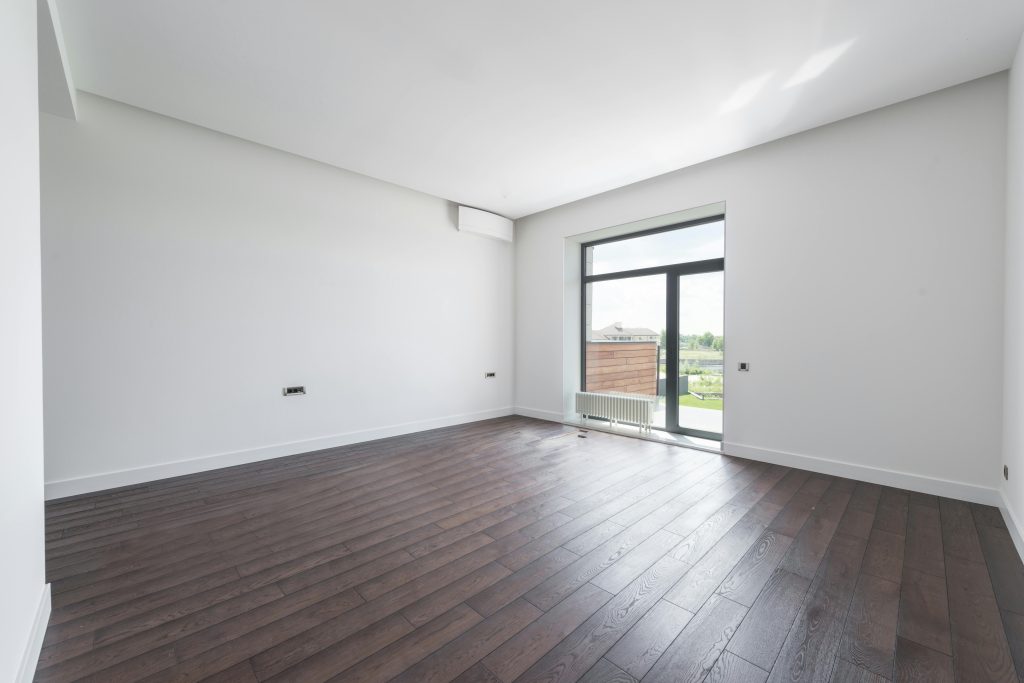Losing someone close to you is never easy.
And when you inherit their property, the practical questions can feel overwhelming at an already difficult time.
If you’re asking yourself “I’ve inherited a house — how do I actually get it into my name?” you’re not alone. Thousands of people across the UK face this exact situation every year.
The good news? While there are legal steps involved, the process itself is straightforward once you know what to do.
This guide will walk you through everything you need to know about transferring an inherited property into your name. We’ll cover the essential legal steps, the timeline you can expect, and — perhaps most importantly — what your options are once the property is officially yours.
Let’s start with the first crucial step.
The First Legal Step: Obtaining a Grant of Probate
Before you can do anything with an inherited property, you need legal permission to deal with the deceased’s estate.
This permission comes in the form of a legal document called a ‘Grant of Probate’ (if there’s a will) or ‘Letters of Administration’ (if there isn’t). For simplicity, we can refer to both as the ‘grant of representation’.
Think of it as your official authorisation to handle the deceased’s affairs — including transferring their property.
Who Applies for the Grant of Probate?
If there’s a will, the executor named in it applies for the grant.
No will? Then the administrator (usually the next of kin) takes on this responsibility automatically.
The Process in Brief
Getting the grant involves three main steps:
1. Value the Estate
First, you’ll need to work out the total value of everything the deceased owned — their property, savings, investments, and personal belongings.
This valuation is crucial because it determines whether inheritance tax is due.
Valuing a home is as easy as just getting a property valuation from a surveyor. But, valuing everything else can be a headache, and warrants a whole article of its own, which is exactly why we have written this wonderful article here: How to Value House Contents for Probate
2. Pay Any Inheritance Tax
Here’s where it gets a bit complex.
If the estate’s total value exceeds £325,000, Inheritance Tax (IHT) may be due. However, there’s an additional ‘residence nil-rate band’ of £175,000 if the home is being passed to children or grandchildren.
This means the tax-free allowance could be up to £500,000 for an individual — or £1 million for a married couple or civil partners.
The key point? You often need to pay at least some of the IHT before you can get the grant. It’s a bit of a catch-22, but there are schemes to help with this if the majority of the estate is property.
To dive deeper into IHT and to figure out whether it will affect you, definitely read this guide.
3. Apply for the Grant
Once the tax situation is sorted, you can apply for the grant through the official government portal.
There’s a standard government fee for this application (currently £300 for all estates over £5,000), and you’ll need to provide various documents including the original will (if there is one) and the death certificate.
How Long Does This Take?
Here’s the reality: obtaining the grant can take anywhere from a few weeks to several months.
The timeline depends on how complex the estate is and how busy the Probate Registry is at the time. During particularly busy periods, we’ve seen it take up to 16 weeks or more. The standard timeframe is 3 – 8 weeks for the submitted application to be granted.
This waiting period is important to factor into your plans, especially if you’re keen to sell or move into the property quickly.
We’ve got a more detailed answer here that discusses how long probate will take to be granted.
The Second Step: Transferring the Title with HM Land Registry
Once you’ve got the grant of representation in hand, you can finally transfer the property into your name.
This is the “putting it in my name” part you’ve been waiting for.
The Forms You’ll Need
The executor or administrator needs to complete specific forms for HM Land Registry.
Form AP1: This is your application to change the register — essentially asking Land Registry to update their records.
Form AS1: This is the ‘assent form’. It’s the legal document that confirms the property is being transferred from the estate to you as the beneficiary.
Don’t worry if this sounds complicated. Your solicitor will typically handle these forms for you, ensuring everything is filled out correctly.
In case you don’t already know, you should appoint a good solicitor to handle the probate process for you. In terms of how much that will cost, we have a comprehensive guide here.
What Happens Next?
Once Land Registry receives your application, they’ll update the official title deeds to show you as the new owner.
There’s a fee for this service, which is based on a sliding scale according to the property’s value. You can see the prices on their website.
And that’s it — the house is now legally yours.
But here’s what many people don’t realise: from this moment, you’re responsible for everything. Council tax, insurance, utility bills, maintenance — it all falls on your shoulders now.
Which brings us to the big question…
The Big Decision: What to Do with Your Inherited Property?
Now that the house is legally yours, you face a crucial decision.
What exactly are you going to do with it?
You’ve essentially got three main options: move in yourself, rent it out, or sell it.
Each option comes with its own set of challenges and responsibilities that need careful consideration. And honestly? Many people underestimate just how much work — and money — an inherited property can involve.
Let me explain what I mean.
The Hidden Costs and Hassles of an Inherited Home
Here’s what catches most people off guard:
The Bills Start Immediately
The moment that property becomes yours, so do the bills.
Council tax kicks in straight away. While some councils offer a short exemption for empty properties, after that you’re paying the full amount — even if nobody’s living there.
Then there’s insurance. You can’t leave the property uninsured, but empty property insurance costs significantly more than standard home insurance.
Don’t forget the utility standing charges either. Even with the heating off, you’re still paying daily charges to keep services connected.
The Property Might Need Serious Work
Let’s be honest here.
Many inherited properties haven’t been updated in years — sometimes decades. That dated kitchen and bathroom? The old boiler that’s on its last legs?
They all need sorting before you can comfortably live in the property or attract decent tenants.
And if you’re planning to sell on the open market? Buyers will either expect these issues to be fixed or they’ll knock thousands off their offer to cover the work themselves.
The Traditional Sale Process Is a Nightmare
If you decide to sell through an estate agent, brace yourself.
The average property sale in the UK can take over six months of waiting, uncertainty, and mounting costs.
During that time, you’ll be dealing with:
- Estate agent fees: Typically 1.5% plus VAT of the sale price.
- Endless viewings: Strangers traipsing through at all hours.
- The chain risk: Your buyer might need to sell their property first, and any link in that chain can break.
- Buyers playing games: Reducing their offer at the last minute.
- Solicitor fees: Another £1,000-£2,000 for conveyancing.
The Emotional Toll
And we haven’t even touched on the emotional side.
Managing a property filled with memories can be incredibly draining. If you’re sharing the inheritance with siblings, disagreements about how to proceed can tear families apart.
The Simple, Fast Alternative: A Guaranteed Cash Sale
What if I told you there’s a way to avoid all of this hassle?
A way to get a guaranteed sale, with no chains, no viewings, and no estate agent fees?
That’s exactly what we offer at Property Rescue when you need to sell an inherited property fast.
Here’s How It Works
Instead of waiting 6+ months, we can complete your sale in a timeline that suits you. Need it done quickly? We’ve exchanged contracts in some urgent cases in as little as 48 hours. Our standard timeframe is 7 – 28 days.
But if you need more time? That’s fine too. You choose the completion date.
No Chains, No Risk
When we make you an offer, it’s guaranteed.
There’s no chain to break. No mortgage to fall through. No last-minute price reductions.
You get certainty in an uncertain time.
We Pay Your Fees
No estate agent fees, plus we cover your solicitor costs too. The price we offer is the amount you receive.
No hidden deductions. No nasty surprises.
Sell in Any Condition
This is perhaps the biggest advantage.
That dated property that needs thousands in repairs? We buy any house in any condition.
You don’t need to fix the boiler. You don’t need to update the kitchen. You don’t even need to
clear out the belongings if you don’t want to.
We take all the stress and expense off your shoulders.
You Can Trust Us
I understand you might be thinking this sounds too good to be true.
That’s why it’s important you know who we are.
Property Rescue has been helping people for over 20 years. We are proud members of the National Association of Property Buyers (NAPB) and are regulated by The Property Ombudsman (TPO), which ensures we operate to the highest ethical standards.
Our five-star Trustpilot reviews speak for themselves. Real people, real stories, real relief.
Your Next Steps
Let’s recap.
Transferring an inherited property into your name involves two main legal steps: obtaining the grant of probate and then registering the transfer with HM Land Registry. It’s a process that can take several months, but once complete, the property is officially yours.
While transferring the title is a legal necessity, what you do next is entirely your choice.
If you want to release the cash from your inherited property quickly — without the stress, costs, and uncertainty of a traditional sale, we can help.
Why Choose a Fast Cash Sale?
Think about it.
No estate agent fees eating into your inheritance.
No months of waiting and wondering if your buyer will pull out.
No expensive repairs or renovations to worry about.
Just a straightforward, guaranteed sale that lets you move forward with your life.
Find Out What Your Property Is Worth Today
At Property Rescue, we understand this is a difficult time, and the last thing you need is sale pressure. That’s why we offer a completely free, no-obligation cash offer for your inherited property.
There’s no commitment. No pushy sales tactics. Just an honest valuation that gives you another option to consider.
Ready to find out what your inherited property could be worth?
Simply enter your postcode on our website for your free cash offer. It takes less than 60 seconds, and you’ll have a guaranteed offer to consider alongside your other options.
Need a cash advance to tide you over or to help cover the probate process? Speak to us. We can help.









